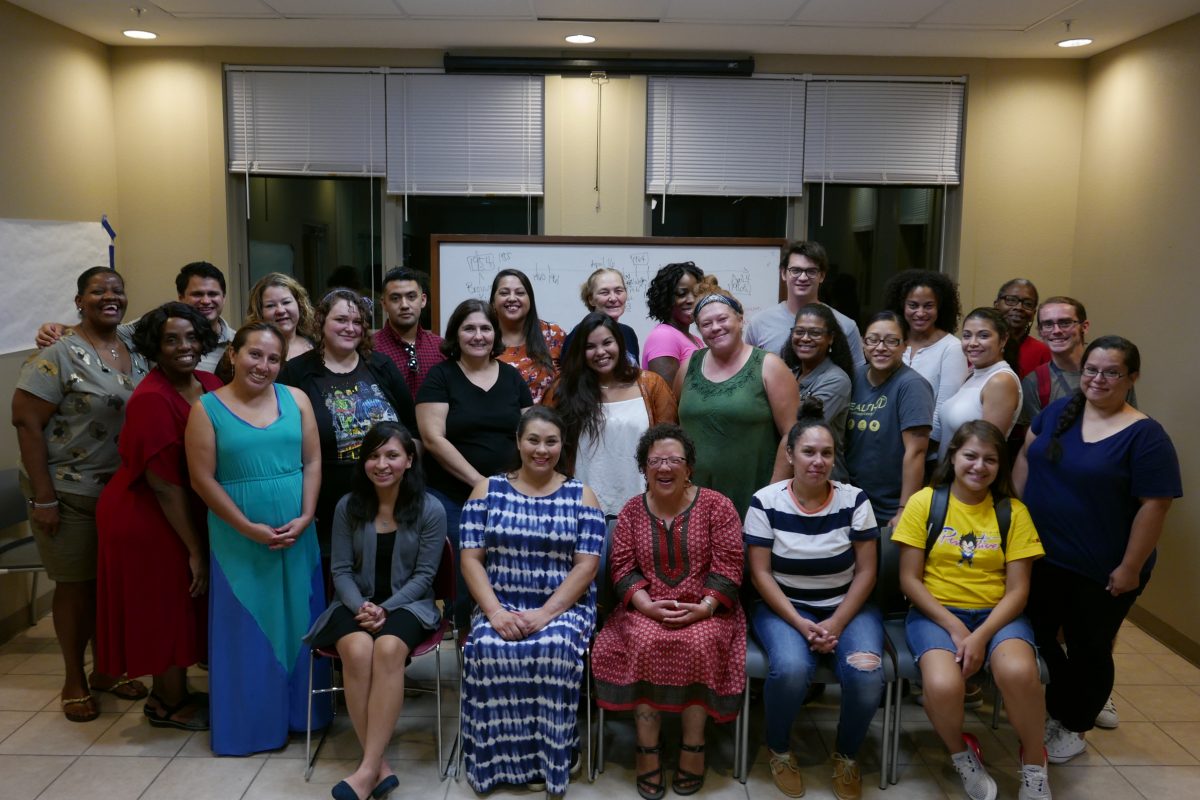While higher education is often touted as the cornerstone of a successful and prosperous life, many are left in the dust, unable to afford the tuition or balance the time needed to build that foundation.
Since its inception in The College of Liberal Arts Humanities Institute at The University of Texas in 2006, the Free Minds program opens the door to a more easily accessible path to higher education, offering a year of college courses in the humanities to adults living on limited incomes in the Austin area.
“I think what excited folks to get this started was the chance to bring the kind of academic space available on college campuses to to those who may not have had access to that in the past,” says Free Minds academic director Amelia Pace-Borah. “Those spaces inspire reflection, close reading, careful engagements with ideas. They open a door to the power and pleasure of human thought and artistic expression out in the community.”
“I think UT sees its place within the Austin community as a promoter of education and the humanities for everyone. We have the responsibility to go beyond the 40 acres and, as our motto puts it, work to change the world,” adds current Free Minds and UT Austin english professor Patricia Garcia.
In 2013, the University passed the torch to the Foundation Communities but continues to be an active partner, with the Department of English and Centers for Women’s and Gender Studies and Mexican American Studies supporting UT faculty who teach in the program, such as this year’s faculty, American Studies associate professor Shirley Thompson and English lecturer Patricia García.
A former professor for the program, UT Austin classics professor Tom Palaima, notes that “the transition to college is where their lives went off track. But this program really accomplishes something. It not only activates the humanistic side. There’s an end goal.”
When the twelfth Free Minds class kicked off last August, nearly half of the 23 participants were stepping into a college classroom for the first time. These students, many of whom are parents trying to help their own children with academic development, strive to further their own education. Upon graduating from the program, each student earns six credit hours at Austin Community College.
“Above all,” Pace-Borah says, “I hope that students come away valuing their own ideas and capabilities and that they come away really fired up to put those capabilities to use in new and creative ways, in their families, at their jobs, wherever they find themselves.”
In addition to delving into literature, art history, philosophy, history, and creative writing, students experience access to the culture of campus, attending a Shakespeare performance and touring the Blanton Museum each year. As a program of Foundation Communities’ College Hub, Free Minds can connect graduates to continued support as they navigate college applications and financial aid.
“I firmly believe that my journey with Free Minds has made me a stronger person,” says class of 2018 alumna Angela Herron. “My Free Minds community serves as a foundation for my inspiration to continue in my education regardless of the barriers.”
In its design, the program offers an example of how to break down barriers within higher education, organizers note. There is no age limit for the program, they offer free dinners and daycare and the program meets in the evening twice a week in order to accommodate busy schedules.
“Free Minds has given me confidence, not just in my abilities as a student, but in myself as a person who can accomplish goals and have success,” says 2018 graduate David Feaster, who notes that Free Minds helped him move past the mental health issues he had struggled with for years. “I still have a way to go, but now I can actually begin to see myself getting somewhere.”
